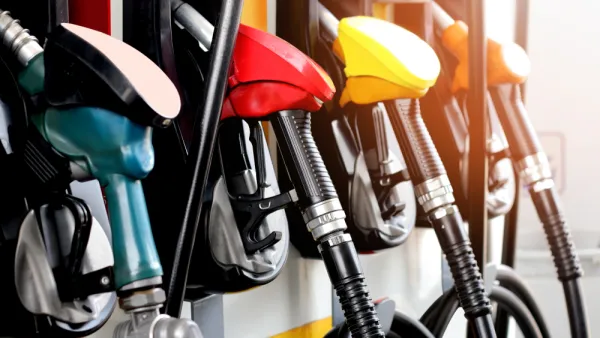An IEA report suggests that oil prices have bottomed-out, are now on the rebound, and that demand for OPEC's oil will start rising next year. OPEC predicts that U.S. oil consumption will increase after years of decline, thanks to U.S. motorists.
"OPEC also sees American motorists as an ally," write Sarah Kent and Benoît Faucon of The Wall Street Journal. "The cartel increased its forecast for North American oil consumption by 15,000 barrels a day, a shift that translates into an increase of 20,000 barrels a day in forecast demand growth world-wide."
“Gasoline, in particular, remains a key driver behind the growth in U.S. oil demand, largely a result of lower oil prices,” OPEC said. Overall, oil consumption is expected to increase by 1.17 million barrels a day to 92.32 million barrels a day.
The additional oil demand from the U.S. is a cherry on top of their main goal—reducing global oil production, particularly from America's fracking wells, which was one of the findings of the Feb. 10 International Energy Agency (IEA) report:
A wave of spending cuts by oil producers and a sharp decline in the number of rigs drilling for crude in the U.S. likely will slow the nation’s oil-output growth, spurring a rebound in prices.
"The conclusions drawn from the IEA and the OPEC reports indicate that OPEC’s strategy to protect market share by keeping the spigots open is showing early signs of success," write Kent and Faucon. "Led by Saudi Arabia, OPEC in November surprised markets when it maintained its production levels, a move that some observers said was aimed at weakening U.S. shale-oil producers."
However, not everyone is aboard the "glut is abating" boat, even if the IEA report gives it credibility. Steve LeVine, Quartz's Washington correspondent, reports that two major investment banks believe that prices have not bottomed, one believing that prices could drop to the $20 per barrel level, the other saying "the price will average $40 to $50 a barrel for the year as a whole."
Either way, OPEC wins. The longer American motorists enjoy cheap gas prices, the longer the U.S. is hooked on cheap oil and push up U.S. oil demand, making them OPEC's best friend.
If there's one lesson to be learned here, it's that if U.S. leaders want to achieve energy security, or as some call it, energy independence, they will need to do more than just boost production, now shown rather ironically to be vulnerable to OPEC's pricing tactics; consumption needs to be looked at as well.
Correspondent's note: Subscriber-only content to Wall Street Journal article should be available to non-subscribers for up to seven days after Feb. 10.
FULL STORY: Oil-Price Rebound Predicted: IEA Adds to Chorus of Voices Saying Glut Will Abate

Analysis: Cybertruck Fatality Rate Far Exceeds That of Ford Pinto
The Tesla Cybertruck was recalled seven times last year.

National Parks Layoffs Will Cause Communities to Lose Billions
Thousands of essential park workers were laid off this week, just before the busy spring break season.

Retro-silient?: America’s First “Eco-burb,” The Woodlands Turns 50
A master-planned community north of Houston offers lessons on green infrastructure and resilient design, but falls short of its founder’s lofty affordability and walkability goals.

Test News Post 1
This is a summary

Analysis: Cybertruck Fatality Rate Far Exceeds That of Ford Pinto
The Tesla Cybertruck was recalled seven times last year.

Test News Headline 46
Test for the image on the front page.
Urban Design for Planners 1: Software Tools
This six-course series explores essential urban design concepts using open source software and equips planners with the tools they need to participate fully in the urban design process.
Planning for Universal Design
Learn the tools for implementing Universal Design in planning regulations.
EMC Planning Group, Inc.
Planetizen
Planetizen
Mpact (formerly Rail~Volution)
Great Falls Development Authority, Inc.
HUDs Office of Policy Development and Research
NYU Wagner Graduate School of Public Service


























